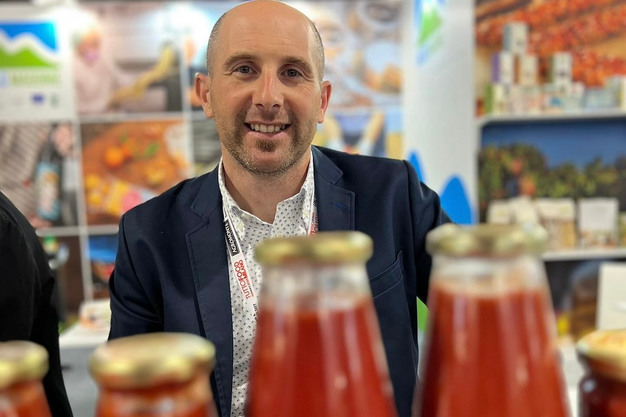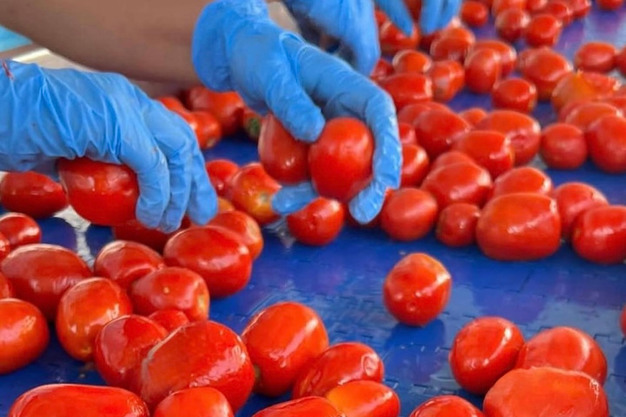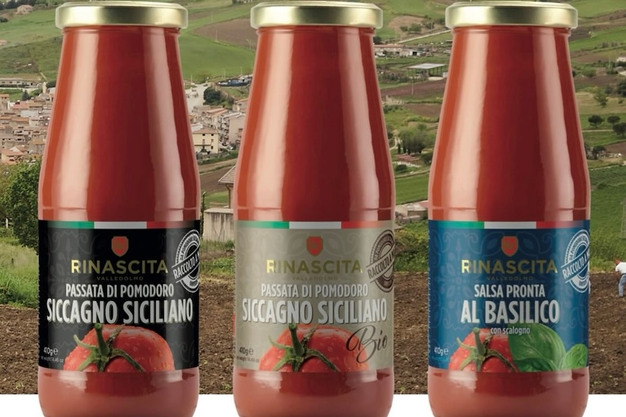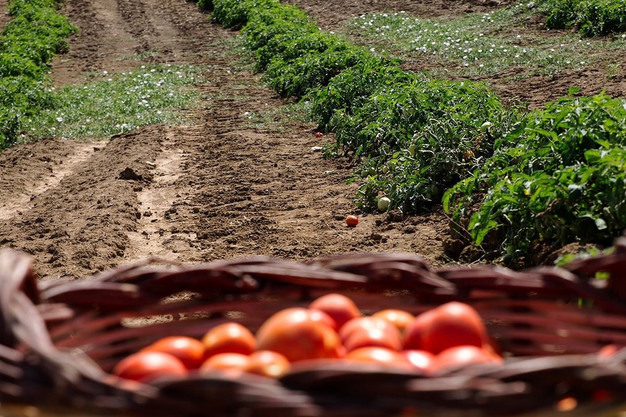"Despite the cool spring weather and some drizzle after two years of extreme drought, Siccagno tomatoes have been affected by with a few issues as well, even though they are grown using dryland farming techniques and even though they are well known for their resistance to water shortages," reports Vincenzo Pisa, agronomist and president of the Rinascita cooperative in Valledolmo (Palermo), a small and virtuous example of an enterprise made up of about 20 member-owners and about 50 hectares invested in the production of Siccagno tomatoes.
"We continue our work thanks to our passion and tenacity, albeit in a context marked by climate change that compromises production yields and the margins of member companies. The hailstorm in June hit the seedlings during their growing phase, and later, in mid-August (15 August), some plots suffered significant damage with an overall loss of raw material estimated at around 30%."
 © Cooperativa RinascitaVincenzo Pisa, president of the Rinascita cooperative in Valledolmo (Palermo).
© Cooperativa RinascitaVincenzo Pisa, president of the Rinascita cooperative in Valledolmo (Palermo).
Siccagno tomatoes, which are cultivated without any water, are grown in a remote corner of Sicily where the soil is clayey and difficult to till, although generous in nutrients. In Valledolmo (PA), Cooperativa Rinascita carries on an agricultural production that is as difficult as it is virtuous, capable of combining tradition and environmental sustainability. Founded in 1977 by a group of small local farmers, including Vincenzo Pisa's grandfather, Cooperativa Rinascita developed as a collective response to the need to give contractual strength to local producers, compared to the large processing industries. Today, the cooperative boasts over 20 members and has become a model of an integrated supply chain thanks to the construction in 2003 of its own factory, which allows it to take care of every stage of production from sowing to processing.
 © Cooperativa Rinascita
© Cooperativa Rinascita
"In addition to the climate, which globally undermines every agricultural sector, unfortunately, a further obstacle to the cooperative's growth is the lack of generational turnover, which, in parallel with the shortage of labour, holds back the expansion of this crop. The processing of Siccagno tomatoes, in fact, unlike other types of tomatoes, requires the arms of young operators for about 70% of its production cycle."
 © Cooperativa Rinascita
© Cooperativa Rinascita
"Siccagno tomatoes grow only with the moisture retained by the soil and no irrigation or invasive chemical treatments. They are an example of pure sustainability, considering that, during the entire production cycle, we do not subtract a single drop of water from the planet. Moreover, we grow the tomatoes on an impervious hillside terrain, where it is impossible for mechanical means to pass. The fertilisation of the soil is also sustainable and natural, as it is derived from crop rotation, i.e., the rotation of other species, particularly cereals, pulses and wheat."
 © Cooperativa Rinascita
© Cooperativa Rinascita
"Due to these special conditions, tomato plants produce low yields but are very strong and resistant to disease. Moreover, positive aspects include the fact that they do not suffer from the presence of weeds, as these become rarer in the absence of water. The transplanting of the seedlings usually takes place in spring, while harvesting takes place during the summer, until late August."
 © Cooperativa Rinascita
© Cooperativa Rinascita
"Our top products available in the organic and traditional versions include: tomato sauce available in 410 gram jars processed at low heat, dried tomatoes, and the classic Sicilian sweet and sour caponata typical of the Palermo tradition. The brand fully guarantees to end consumers organic products with a short artisanal supply chain and that respect the environment at every stage of production."
For more information: © Cooperativa Rinascita
© Cooperativa Rinascita
Cooperativa Rinascita Valledolmo
C/da Rovittello
90020, Sclafani Bagni (PA) - Italy
+39 0921458084
+39 320 0575768
[email protected]
[email protected]
www.rinascitavalledolmo.it
